Untitled (Korçë, Albania): photo by Geoff Wong, 12 July 2009
I've been smoking steadily all morning
if I stop the roses will embrace me
they'll choke me with thorns and fallen petals
they grow crookedly, each with the same rose colour
they gaze, expecting to see someone go by; no one goes by.
Behind the smoke of my pipe I watch them
scentless on their weary stems.
In the other life a woman said to me: 'You can touch this hand,
and this rose is yours, it's yours, you can take it
now or later, whenever you like'.
if I stop the roses will embrace me
they'll choke me with thorns and fallen petals
they grow crookedly, each with the same rose colour
they gaze, expecting to see someone go by; no one goes by.
Behind the smoke of my pipe I watch them
scentless on their weary stems.
In the other life a woman said to me: 'You can touch this hand,
and this rose is yours, it's yours, you can take it
now or later, whenever you like'.
I go down the steps smoking still,
and the roses follow me down excited
and in their manner there's something of that voice
at the root of a cry, there where one starts shouting
'mother' or 'help'
or the small white cries of love.
and the roses follow me down excited
and in their manner there's something of that voice
at the root of a cry, there where one starts shouting
'mother' or 'help'
or the small white cries of love.
It's a small white garden full of roses
a few square yards descending with me
as I go down the steps, without the sky;
and her aunt would say to her: 'Antigone, you forgot your lessons today,
at your age I never wore corsets, not in my time.'
Her aunt was a pitiful creature: veins in relief,
wrinkles all round her ears, a nose ready to die;
but her words were always full of prudence.
One day I saw her touching Antigone's breast
like a small child stealing an apple.
a few square yards descending with me
as I go down the steps, without the sky;
and her aunt would say to her: 'Antigone, you forgot your lessons today,
at your age I never wore corsets, not in my time.'
Her aunt was a pitiful creature: veins in relief,
wrinkles all round her ears, a nose ready to die;
but her words were always full of prudence.
One day I saw her touching Antigone's breast
like a small child stealing an apple.
Is it possible that I'll meet the old woman now as I go down?
She said to me as I left: 'Who knows when we''ll meet again?'
And then I read of her death in the newspapers
of Antigone's marriage and the marriage of Antigone's daughter
without the steps coming to an end or my tobacco
which leaves on my lips the taste of a haunted ship
with a mermaid crucified to the wheel while she was still beautiful.
She said to me as I left: 'Who knows when we''ll meet again?'
And then I read of her death in the newspapers
of Antigone's marriage and the marriage of Antigone's daughter
without the steps coming to an end or my tobacco
which leaves on my lips the taste of a haunted ship
with a mermaid crucified to the wheel while she was still beautiful.
..............................
George Seferis (1900-1971): Mathios Paskalis Among the Roses, from Logbook I, 1940, in George Seferis: Collected Poems (Revised edition), translated by Edmund Keeley and Philip Sherrard, 1991
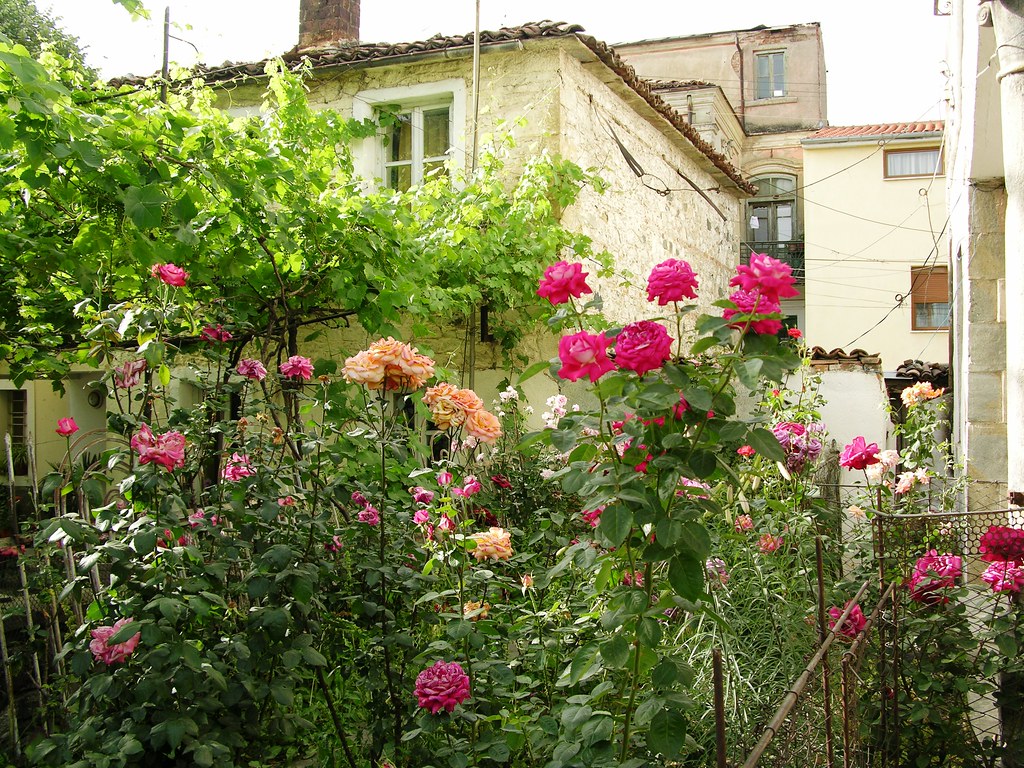
Rose Garden, Central Korca [Korçë], Albania): photo by David & Bonnie, 15 June 2010
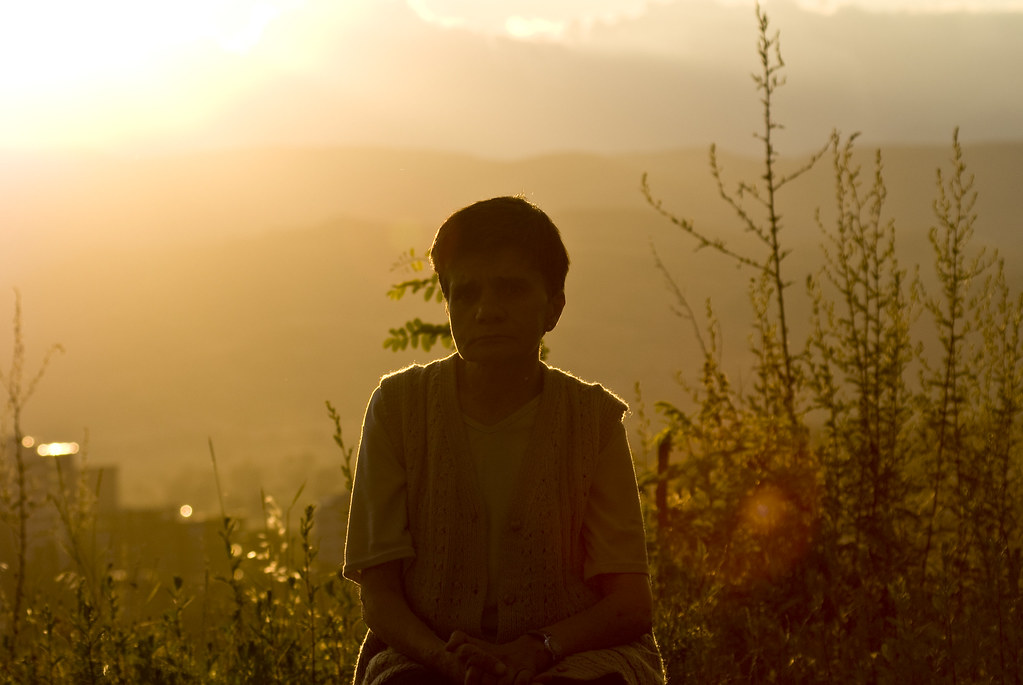
Sunset silhouette (Korçë, Albania): photo by Geoff Wong, 12 July 2009

Xhiro (Korçë, Albania): photo by Geoff Wong, 12 July 2009
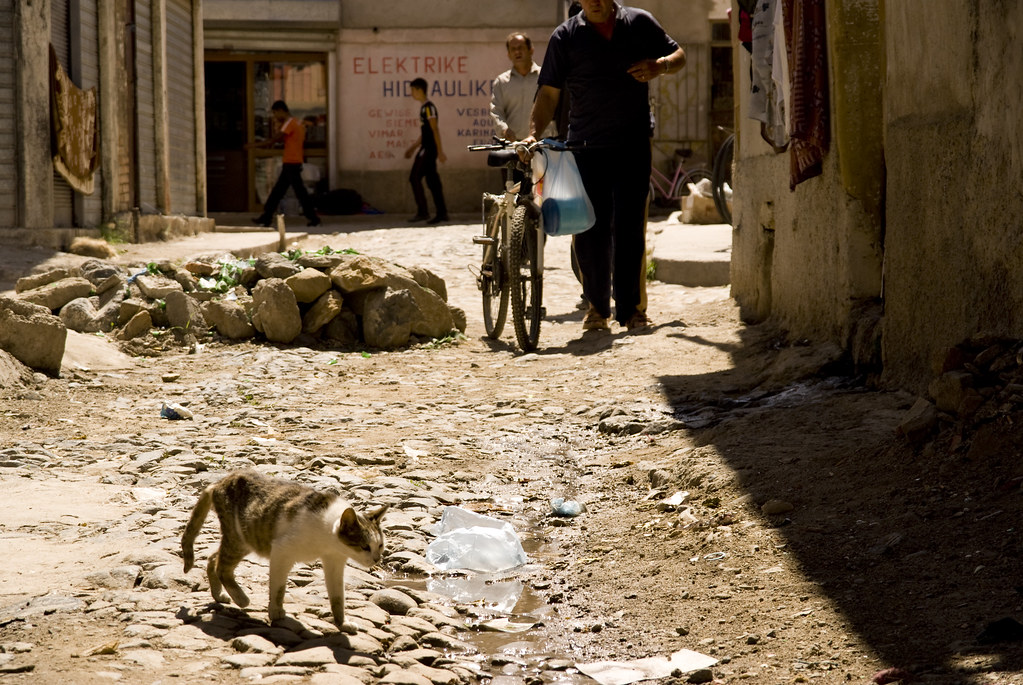
Locals (Korçë, Albania): photo by Geoff Wong, 12 July 2009
#Korçë #Albania: image via Juxhin Çela @Juxhin ÇelaEU, 7 May 2015
George Seferis in London, 1925: photographer unknown; image via Denise Harvey
George Seferis served as a diplomat for the government of Greece from 1926 to 1962. Mathios Paskalis Among the Roses was written during his two-year tenure as Greek Consul in Koritsa (Korçë), Albania.
Seferis touched on the relation between his diplomatic work and his
work as a poet in a 1968 interview with his translator Edmund Keeley,
conducted at Princeton, where the poet was then a member of the
Institute for Advanced Study. Some excerpts from the interview:
INTERVIEWER
Was there anything in your professional career -- that is, the
experience you had as a diplomat -- which may have influenced in some way
the imagery of your poetry or affected the particular themes you chose
to express?
SEFERIS
I don’t believe that any themes or any imagery were created by my
job, though I might mention -- how did you translate it? -- the lines from
“Last Stop”: “souls shriveled by public sins, each holding office like a
bird in its cage.” I mean that is one of the few images I have drawn
directly from my public service. But I could have felt that even if I
had not been in the diplomatic service. But it was important for me that
I had a job which was not related to my creative work. And the other
thing is that I was not -- how shall I put it? -- not obliged to deal with
models which belonged to literature. Of course, there are troubles in
that career. The main thing I suffered from was not having enough time.
Although others might tell you that it is better not to have time
because it is the subconscious which is doing the poetical work. That’s
the point of view of Tom Eliot. I remember once, when I was transferred
from London to Beirut (this was after just one and a half years of
service in London), I told him: “My dear Mr. Eliot, I think I am fed up
with my career and I shall give up all this.” I remember his saying: “Be
careful, be careful if you do that,” and then he mentioned the
subconscious -- the subconscious working for poetry. And I told him: “Yes,
but if I have a job, an official job which is interfering with my
subconscious, then I prefer not to have a job. I mean I would prefer to
be a carpenter and to be where my subconscious is quite free to do
whatever it likes, dance or not dance.” And I added: “You know, I can
tell you when my public life began to interfere with my subconscious. It
was on the eve of the war with the Italians -- in September ’40 -- when I
started having political dreams. Then I knew quite well that my
subconscious was suffering the onslaught of my official job. 'In dreams
responsibilities begin.'"
INTERVIEWER
You’ve spent three periods of service in England, spread over the
best part of your literary career. Did you find it an especially
congenial climate for work?
SEFERIS
Not really. A very good place for me for writing was when I was in
Albania because I was quite unknown there, and very isolated; at the
same time I was near Greece, I mean, from the language point of view,
and I could use my free time to advantage. There were no exhausting
social functions.
INTERVIEWER
How about the relation of the Greek poet to his particular historical
tradition? You once said that there is no ancient Greece in Greece.
What did you mean by that exactly?
SEFERIS
I meant Greece is a continuous process. In English the expression
“ancient Greece” includes the meaning of “finished,” whereas for us
Greece goes on living, for better or for worse; it is in life, has not expired yet. That is a fact.
-- from George Seferis, The Art of Poetry No. 13: George Seferis Interviewed by Edmund Keeley: The Paris Review #50, Fall 1970
Ο Γ. Σεφέρης παραλαμβάνει το βραβείο Νόμπελ στις 10 Δεκεμβρίου του 1963 #greece #seferis #proudtobegreek [George Seferis receiving the Nobel Prize, 1963]: image via ThessTips @ThessTips, 10 December 2013
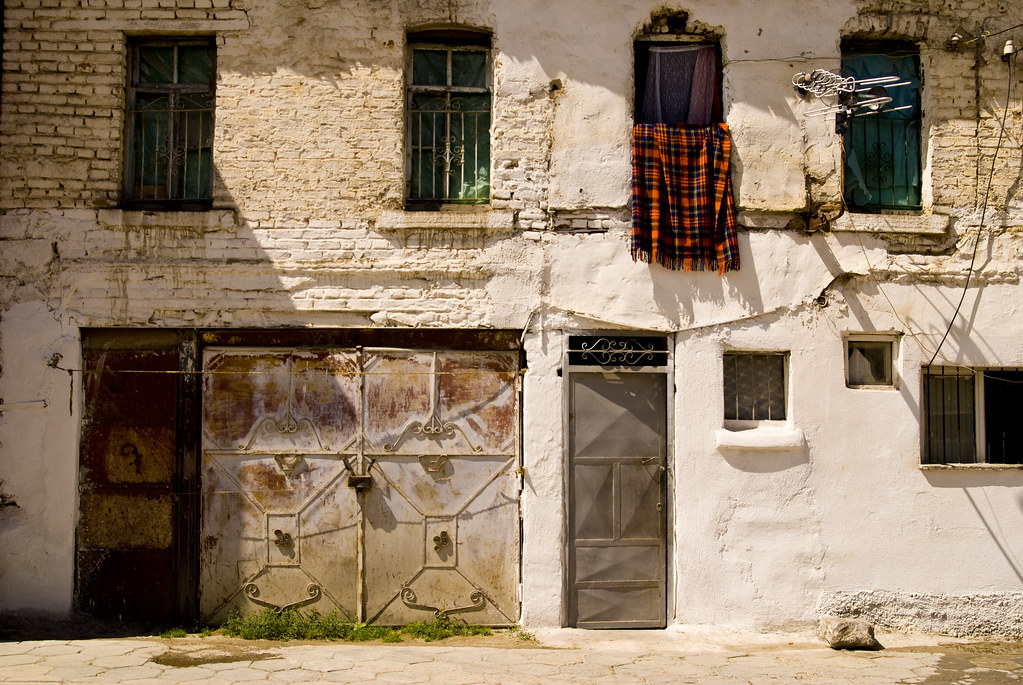
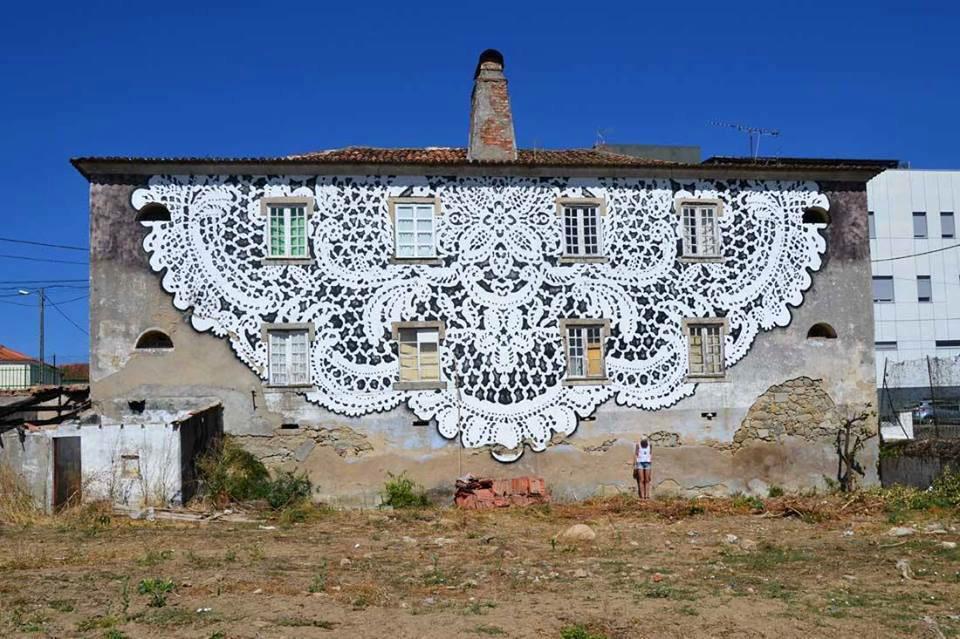
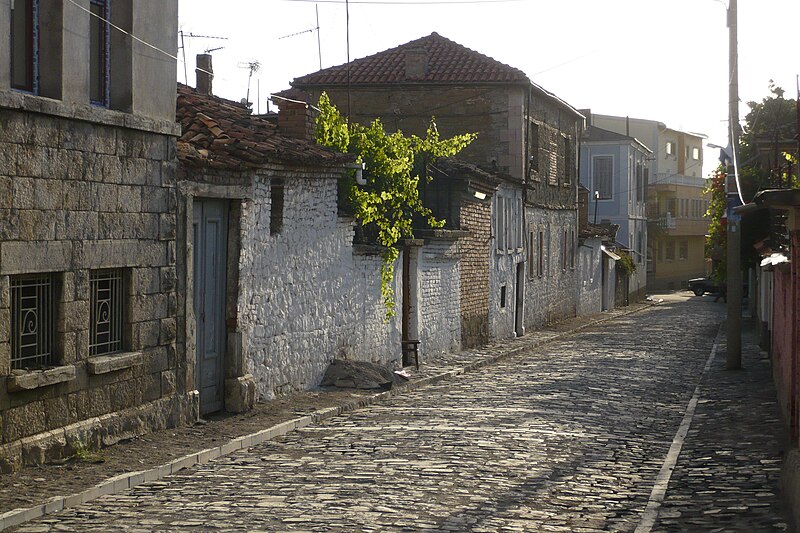

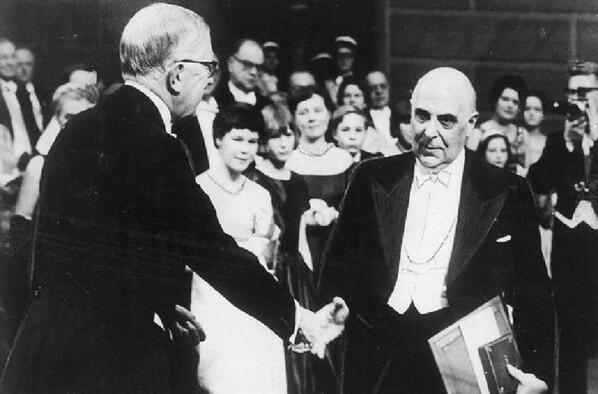



6 comments:
“. . .for us Greece goes on living, for better or for worse; it is in life, has not expired yet. That is a fact.”
Greece has shown the world it remains among the living.
Even in the worst of times, its poets have never permitted us to forget that fact.
E.g.:
_
Waiting for the Coroner's Report (A Greek Proverb for Our Times)
In the meantime,
In the house of the hanged man,
Nobody brings up the subject
Of a rope.
-- Vassilis Zambaras aka "The Squinty-Eyed Kid", Saturday, 4 July 2015
As an old bush pilot put it: running short on fuel is not an immediate concern when your engine’s on fire. Greece ancient or otherwise still has something to teach the world.
words are not enough to tell the beauty of those lines...love this line:
"the small white cries of love."
thanks Tom !
The crucified mermaid: now there's an id with wounds.
Vassilis, those same words grabbed me.
Just come back from a demo in town, OXI! in fierce print over almost every head. A small group of Greek Brummies in the crowd had golden smiles. Greece was alive in Victoria Square for a brief moment.
The acute strangeness of that final image (tn id with wounds indeed), in fact of the whole final stanza of this strange and haunting poem, with its telescoping of time, its beckoning away from the present toward what we imagine to be a kind of "dreamed memory" of another time, another life, a lost world, Asia Minor perhaps, keeps provoking, over the years...
Post a Comment